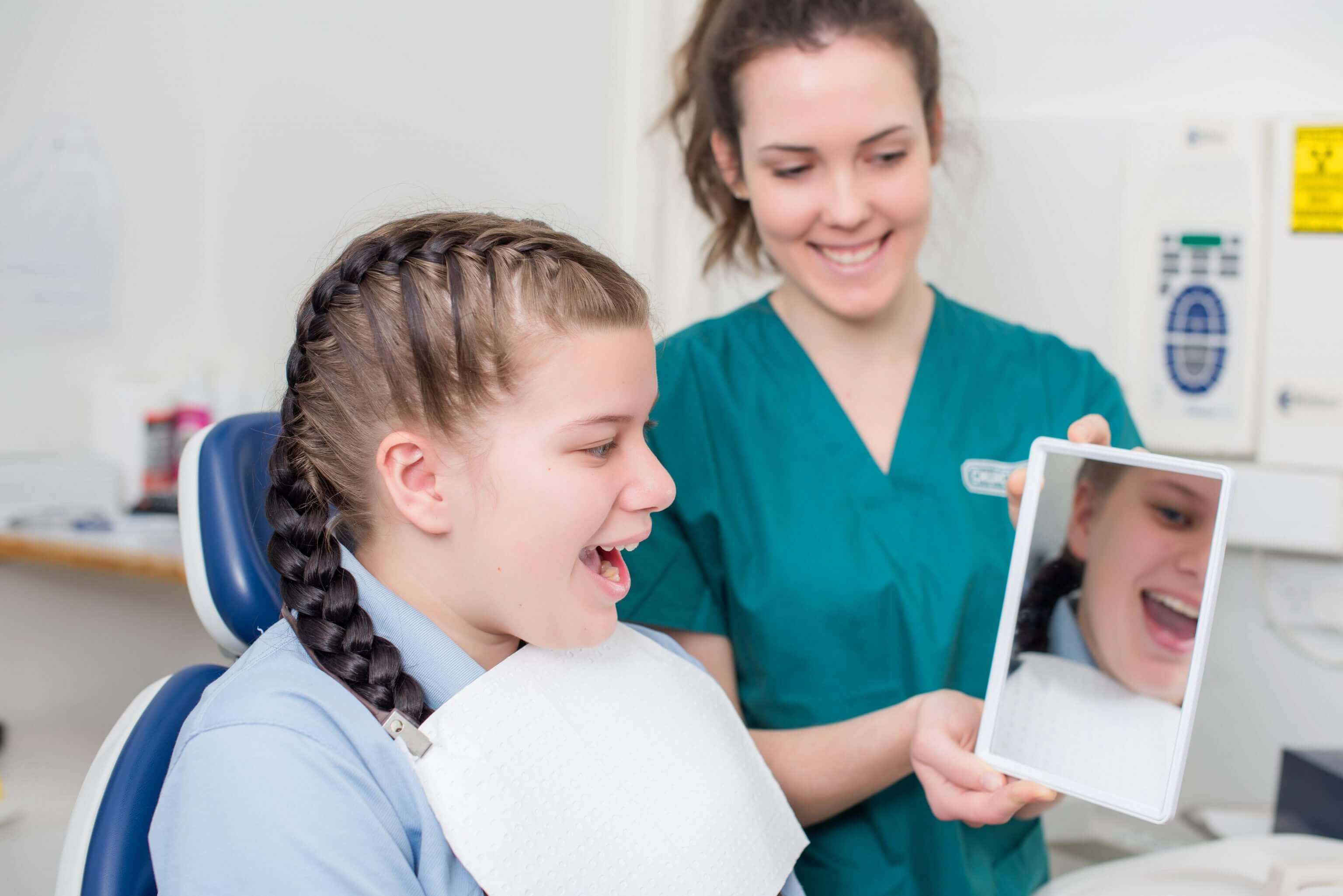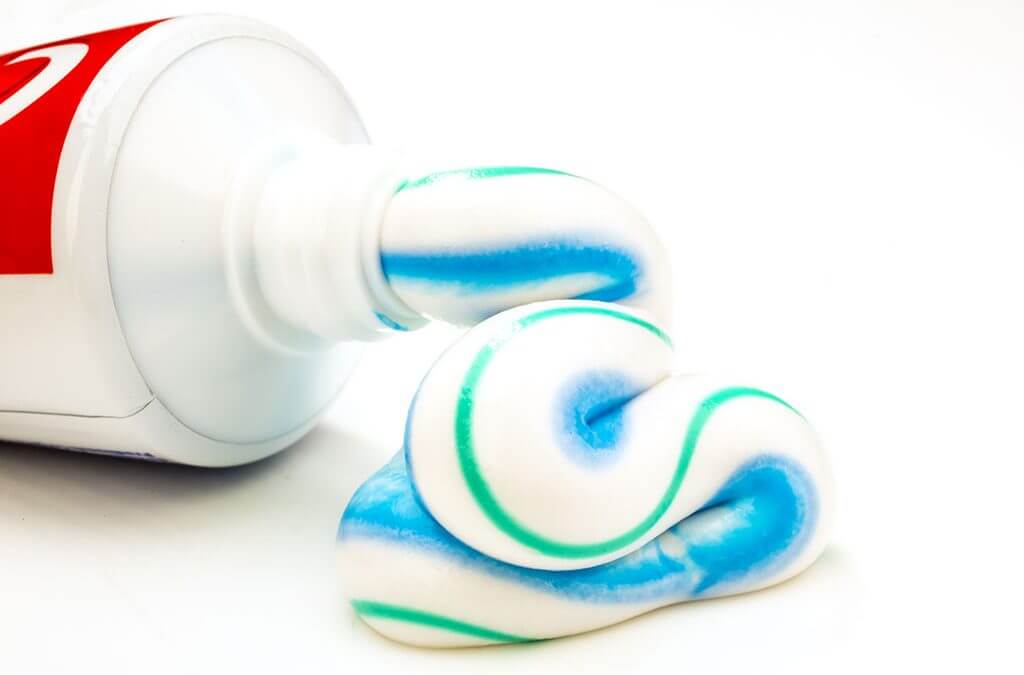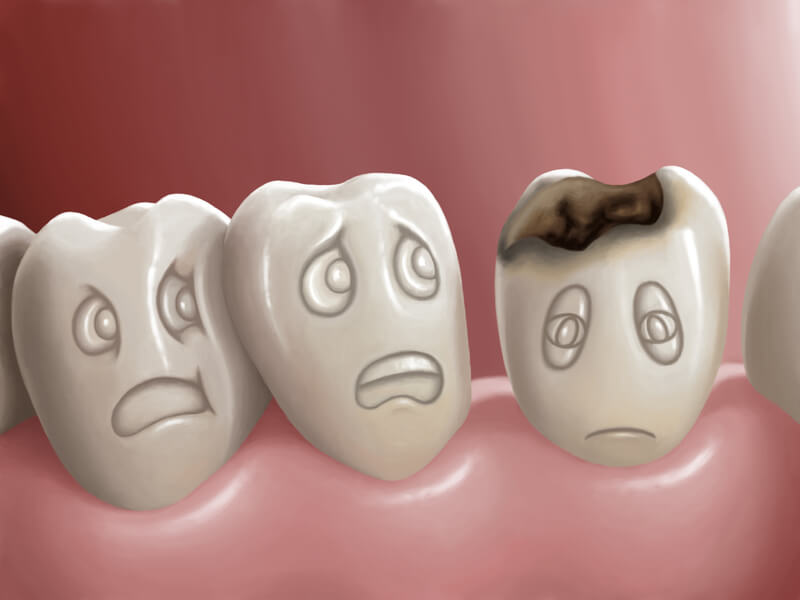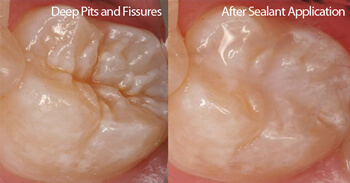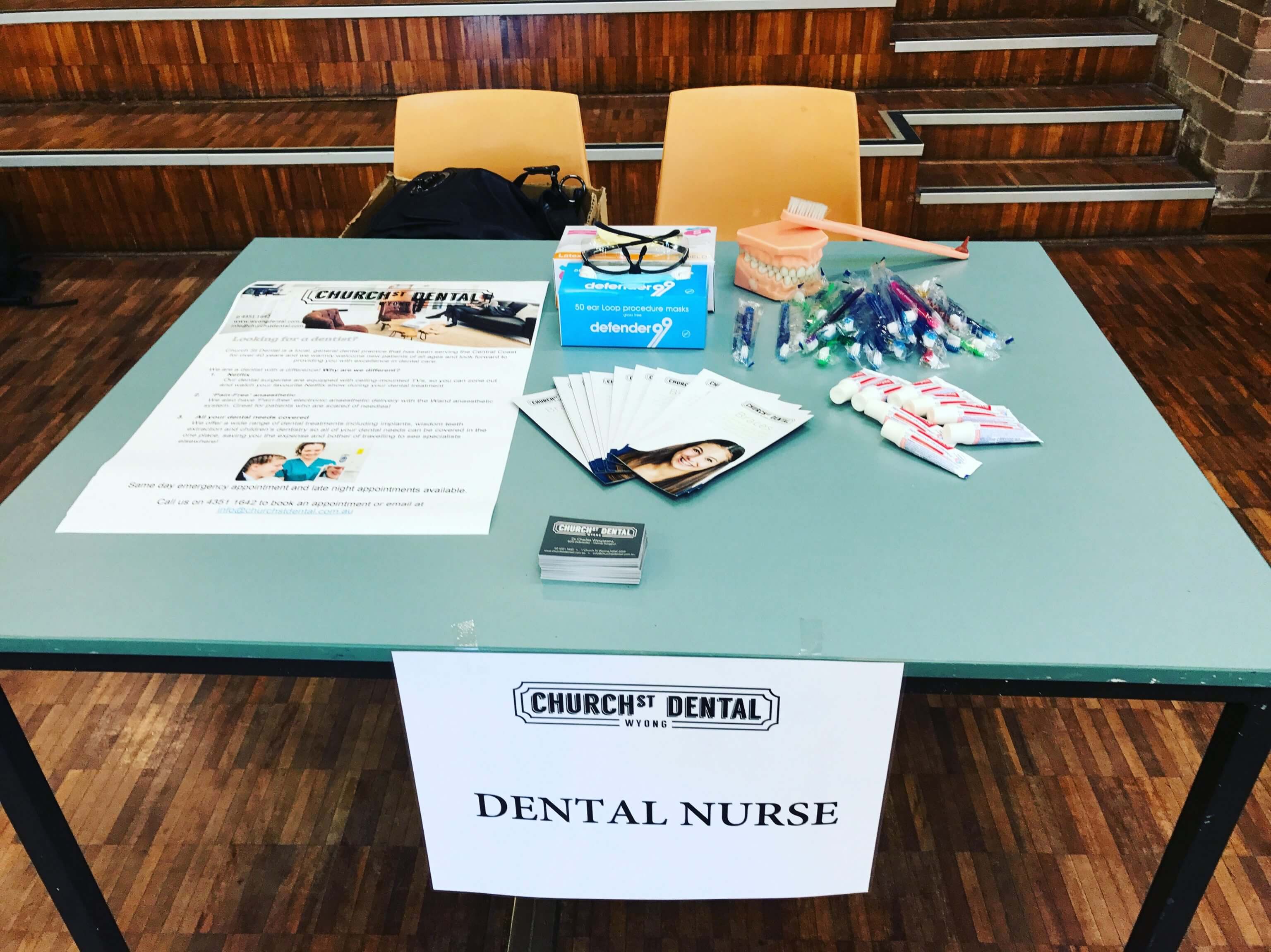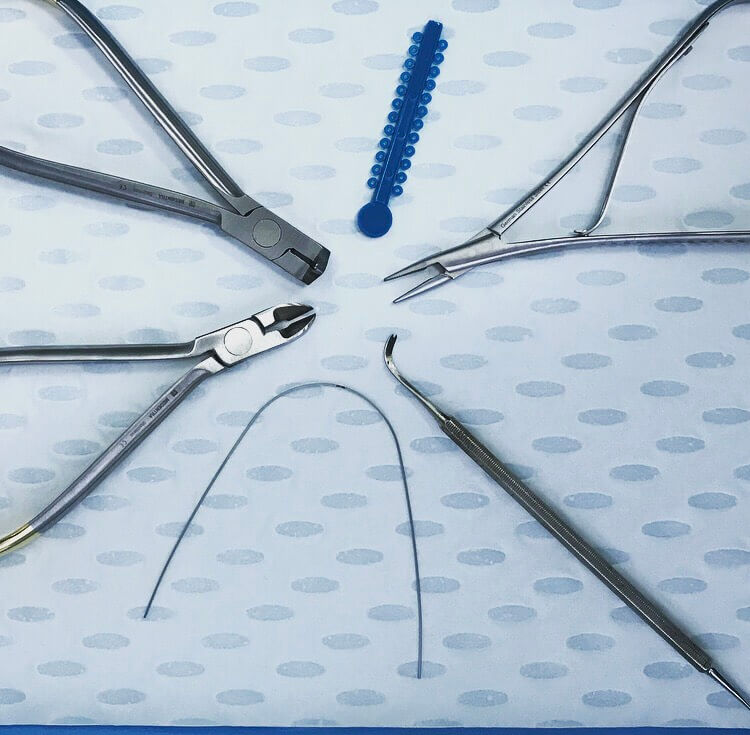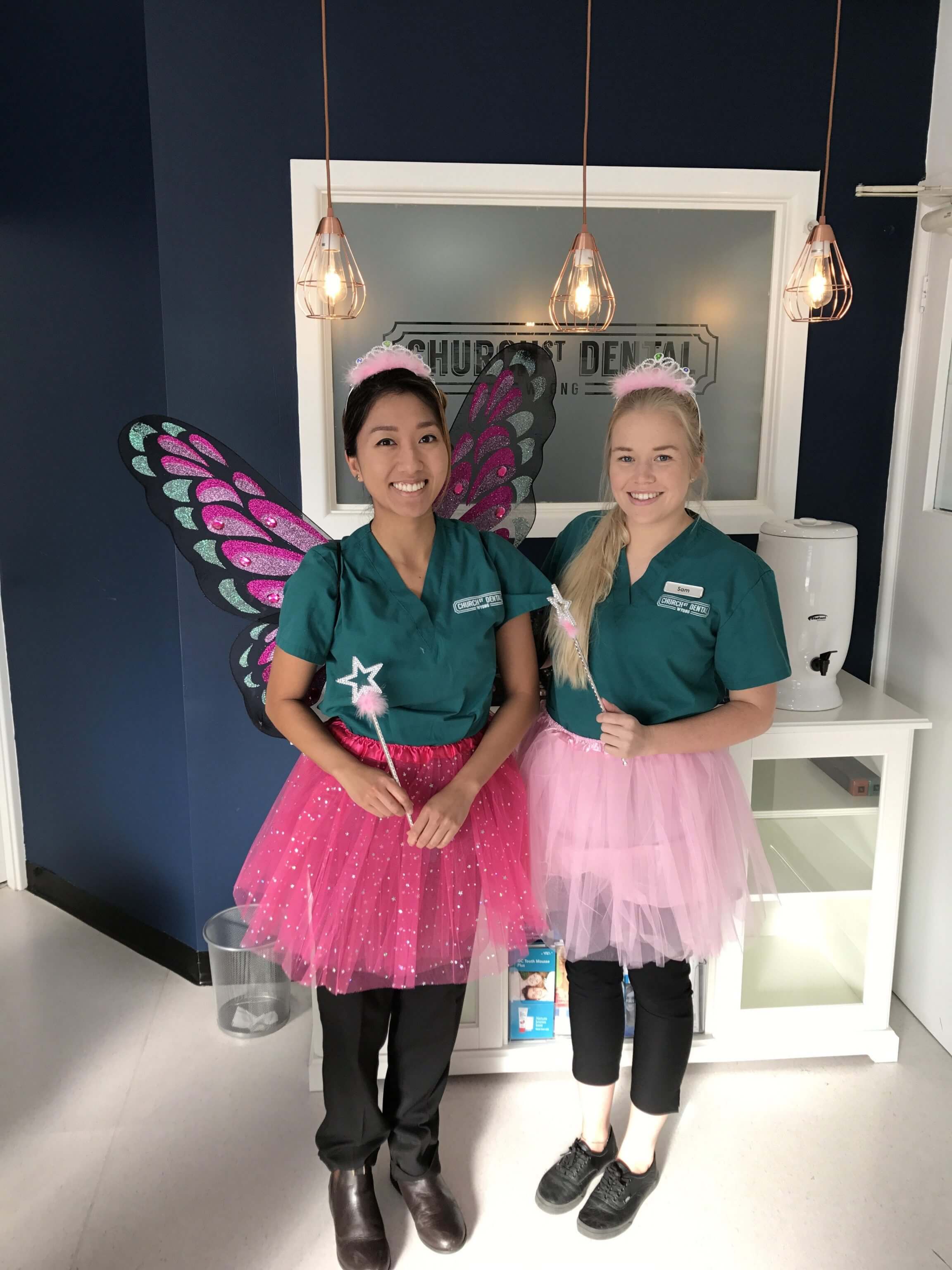This blog describes the best ways to manage a toothache as well as common toothache causes and when to see your dentist.
Toothache is one of the most common reasons for patients to present to emergency departments and general practitioners in Australia, with one study estimating that 22% of adults have experienced some pain in their teeth, gums or jaws within the last six months.
Toothache can have a large impact on quality of life, affecting your ability to undertake normal activities such as eating, talking and sleeping as well as affecting your ability to work.
If left too long, an infection caused by a toothache can become life-threatening and lead to a patient requiring treatment in ICU. At Church St Dental, we always ensure that we have time set aside so that patients who call with a toothache can generally be seen on the day.
Causes
Infection
Most toothaches are caused by infections in the teeth. Infection forms when a cavity in the tooth is left untreated and eats its way through to the nerve, damaging and destroying the nerve and forming infection. The nerve can also be damaged or destroyed through trauma such as sporting injuries.
Once infection has formed in the tooth there are only two methods of treatment:
1. Root Canal Treatment, which involves removing the nerve of the tooth as well as the infection and filling the tooth to prevent further infection. This is the ideal treatment option if you plan on saving the tooth.
2. Extraction of the Tooth, which involves removal of the tooth. There is the option of an artificial tooth replacement following removal of the tooth.
Sensitive Teeth
Tooth sensitivity is another common cause of toothache, with some studies showing 30% of people having sensitivity. Tooth sensitivity can be localised to a particular area or generalised and is caused by the enamel or outer protective shell of the tooth wearing away. This exposes the dentine, second layer of the tooth, which transmits any hot or cold sensation directly to the nerve.
Causes of the enamel wearing away include tooth decay, overbrushing, gum recession, teeth whitening products and teeth grinding. Sensitivity can also be a postoperative side effect of some dental treatment such as filling placement, in this case the sensitivity will usually resolve within a few weeks.
Treatment for sensitive teeth can range from using a specialised toothpaste that targets the sensitivity such as Sensodyne and Colgate Pro-Relief to placing a crown or cap on the affected tooth to prevent further wearing of the enamel. All of the causes of enamel wear are preventable and generally, the best way to treat sensitivity is to prevent it happening in the first place.
Wisdom Teeth
Wisdom teeth are a common cause of toothache, especially in those from their late teens to mid twenties. The pain from wisdom teeth is generally due to the wisdom teeth being impacted or stuck under the gum due to a lack of room for them to break through the gum or the teeth being at the wrong angle. Impacted wisdom teeth can cause symptoms such bad breath and taste, red and swollen gums and problems with jaw opening. Pain and swelling is the most common symptom with one third of patients experiencing this with impacted wisdom teeth.
Impacted wisdom teeth can be diagnosed with a full mouth x-ray and the best long-term treatment is generally removal of the wisdom teeth. At Church St Dental, we have dentists who can remove the wisdom teeth in the chair, however if the wisdom teeth are complicated or deeply impacted, we may refer you to see a specialist known as an oral surgeon for removal of the wisdom teeth in hospital under general anaesthetic.
Periodontal Disease
Periodontal disease, or bone loss disease is one of the most common disease with an estimated three out of four adults having some form of periodontal disease and periodontal disease is responsible for around 70% of adult tooth loss.
Periodontal disease in its early stages, starts as gum disease, the signs of which include sore, red and bleeding gums, bad breath and bleeding after brushing or flossing. The most common cause of gum disease is plaque build-up on the teeth, but can be exacerbated by factors such as smoking, diabetes, family history and hormonal changes in women.
Without treatment, gum disease progresses to periodontal disease or bone loss, leading to visible shrinking gums, loose teeth and infection. At its end stage, periodontal disease can lead to teeth needing to be removed.
The easiest way to prevent periodontal disease is through regular check-up and cleans, however periodontal disease is treatable, especially in its early stages. Treatment options can range from antibacterial mouthwash, gum cleaning under local anaesthetic to gum grafting and surgery.
Referred Pain
Toothache can even have causes that aren’t related to the teeth at all, including referred pain from sinus, or even from the heart. Any instances involving toothache from referred pain need to be further investigated by a doctor.
TMD
A more common cause of toothache can be from TMD or temporomandibular disorders, an umbrella term covering any disorder of the jaw joints and jaw muscles. One of the most common forms of TMD is teeth grinding or clenching known as bruxism. Teeth grinding or clenching usually occurs during sleep, however some people may experience clenching or grinding during the day, especially during periods of stress. Bruxism long-term can cause significant damage to the teeth and lead to jaw or neck pain, headaches, increased tooth sensitivity and tight jaw muscles.
Bruxism can also lead to cracked teeth. Like a crack in a window, a crack in a tooth can spread throughout the tooth, eventually affecting the nerve and leading to nerve death and infection in the tooth. This can generally be treated by root canal treatment but if the crack extends too deep within the tooth, or even splits the tooth, the only option may be extraction of the tooth.
Bruxism has a range of treatments depending on the severity and cases. If bruxism is occurring during waking, the easiest treatment is awareness of keeping the teeth apart and management of any stress that may be contributing to the bruxism. Night time or nocturnal bruxism can be managed with a nightguard (similar to a mouthguard) to prevent tooth damage, or botox of the jaw muscles in more severe cases.
What if I Can’t Get to a Dentist?
With treating a toothache, the number one priority is to always get the area checked by a dentist so that appropriate treatment can be undertaken. However, if you are unable to get to a dentist straight away, there are some remedies that may assist with managing pain and preventing the toothache from getting worse.
Pain Medication
Ibuprofen or neurofen is generally one of the most effective ways of managing toothache pain and is easily available over the counter. An even more effective method of managing toothache pain is a combination of ibuprofen and panadol, which has recently become available and sold in pharmacies as Neuromol or Maxigesic.
Salt Water Rinses
Salt water rinses can assist with keeping the toothache area clean and improve gum healing as they are a natural antibacterial agent.
Clove Oil
Clove contains eugenol which acts as a numbing agent to provide temporary relief of the toothache area. It is important to use clove oil sparingly, as too much can burn the gums and result in more pain and damage to the toothache area.
Will Antibiotics help with Toothache?
Antibiotics will not cure a toothache and studies have shown that antibiotics will provide little benefit to the treatment of toothaches unless the toothache is caused by an infection. If the toothache is caused by an infection, antibiotics will only assist if there is evidence that the infection is spreading. Signs of an infection spreading may include feeling unwell and fever, in this case, antibiotics will assist with managing the spread of the infection, but the priority is to treat the infection at the site.
 1 Church Street, Wyong NSW 2259
1 Church Street, Wyong NSW 2259
